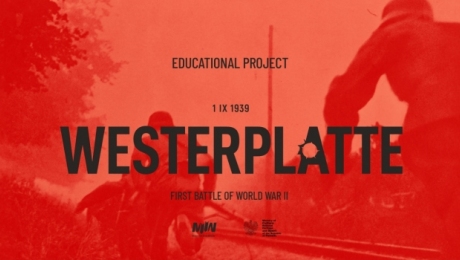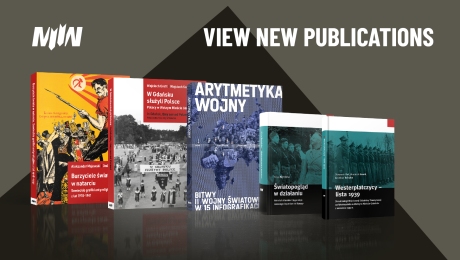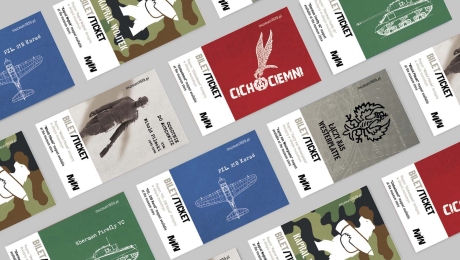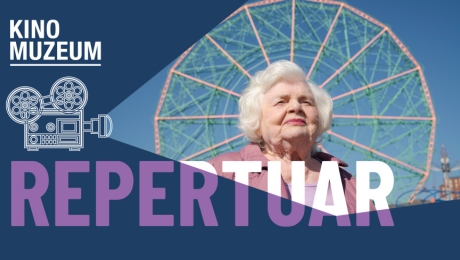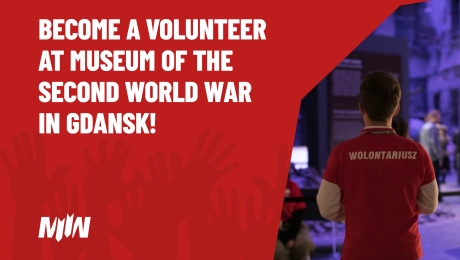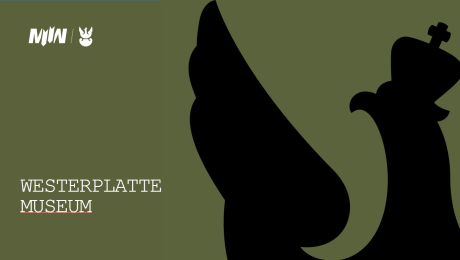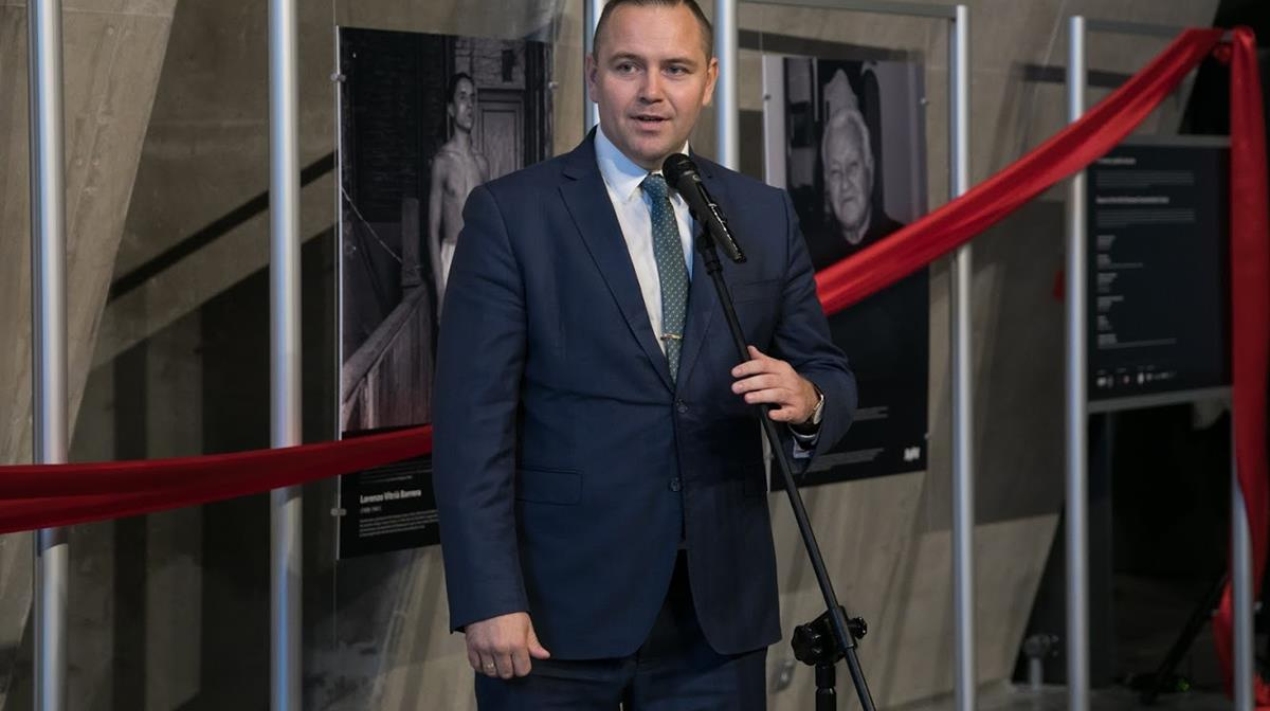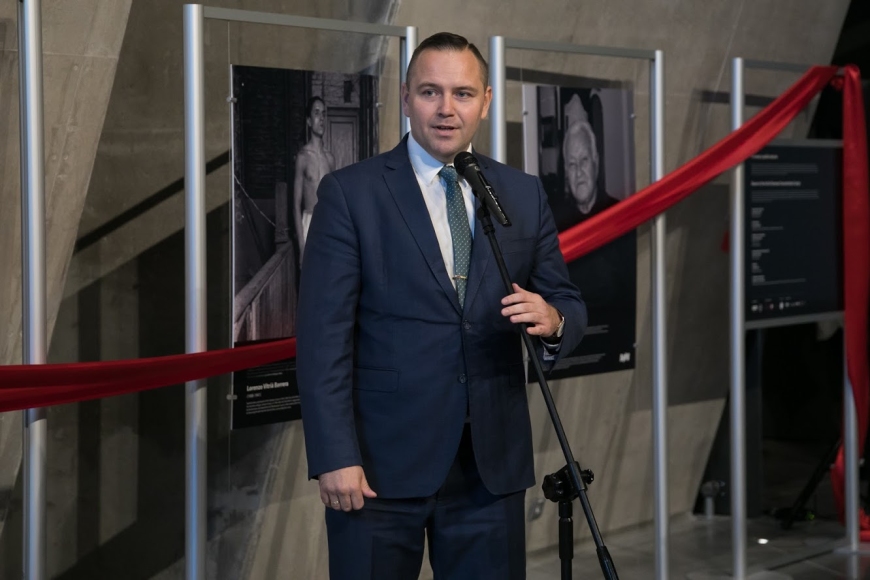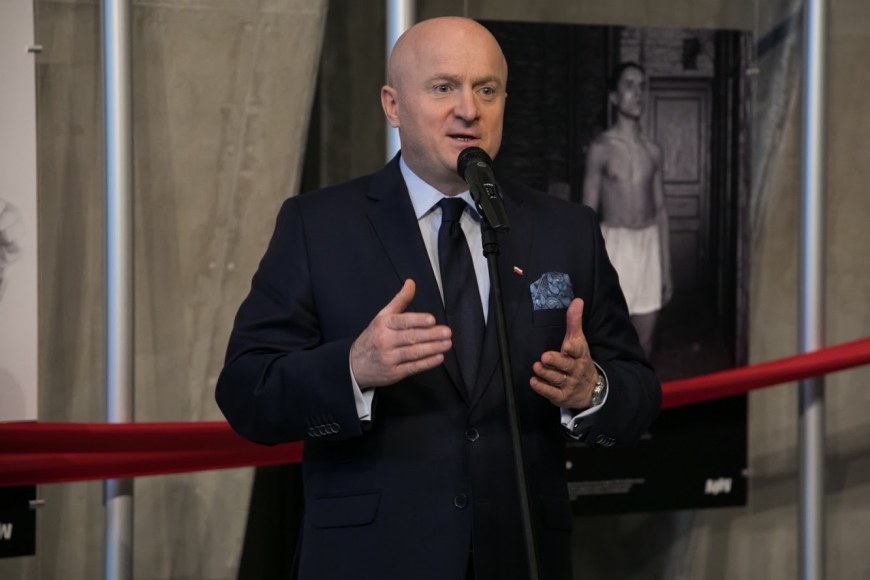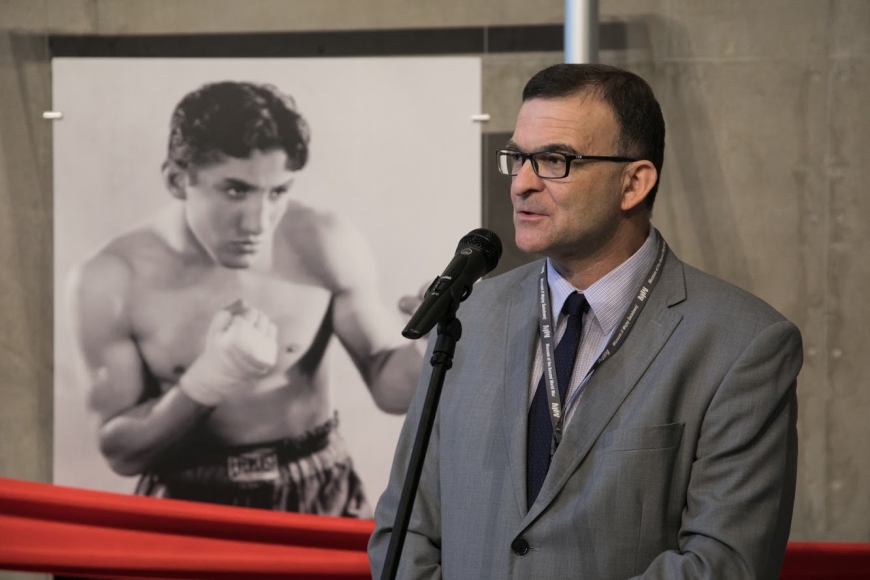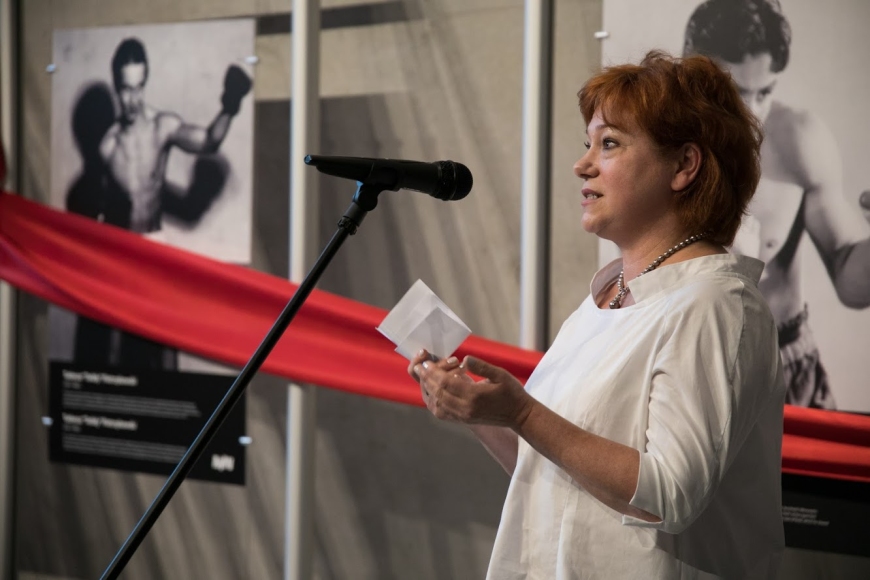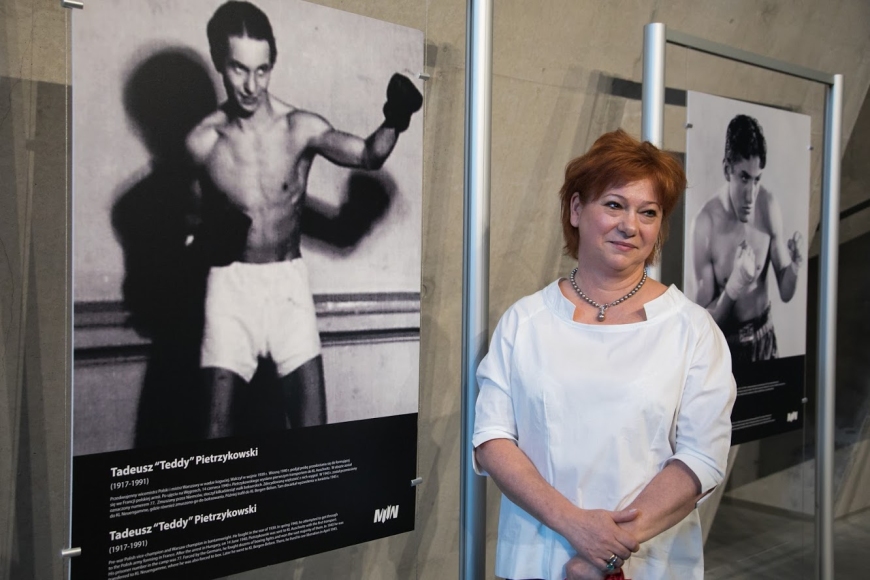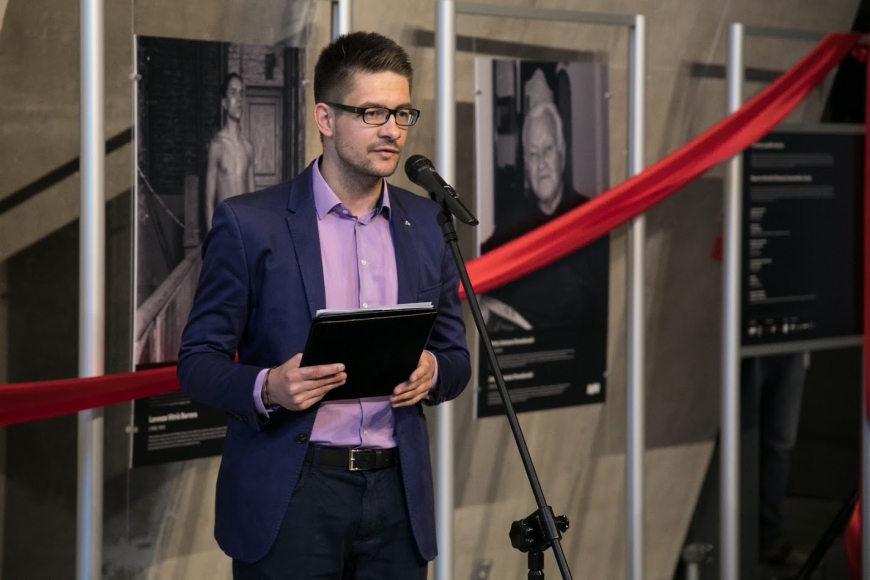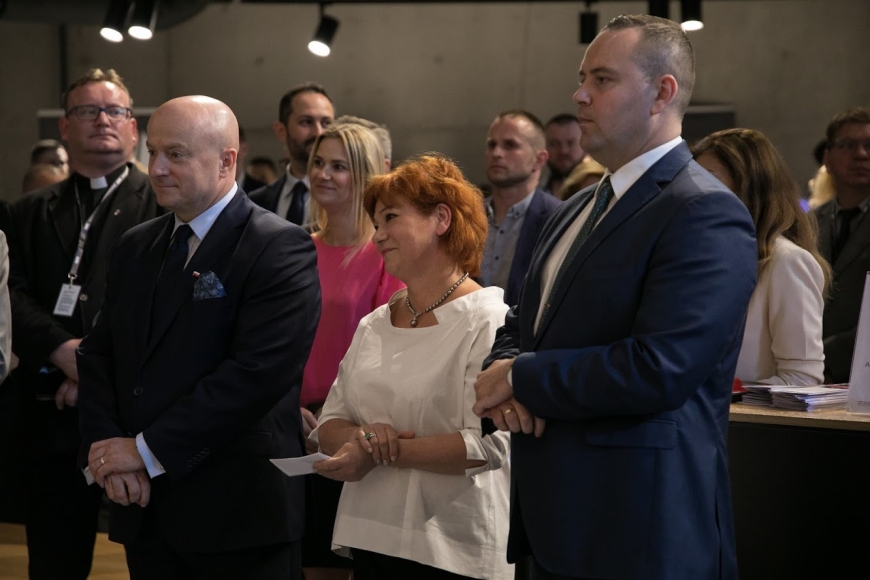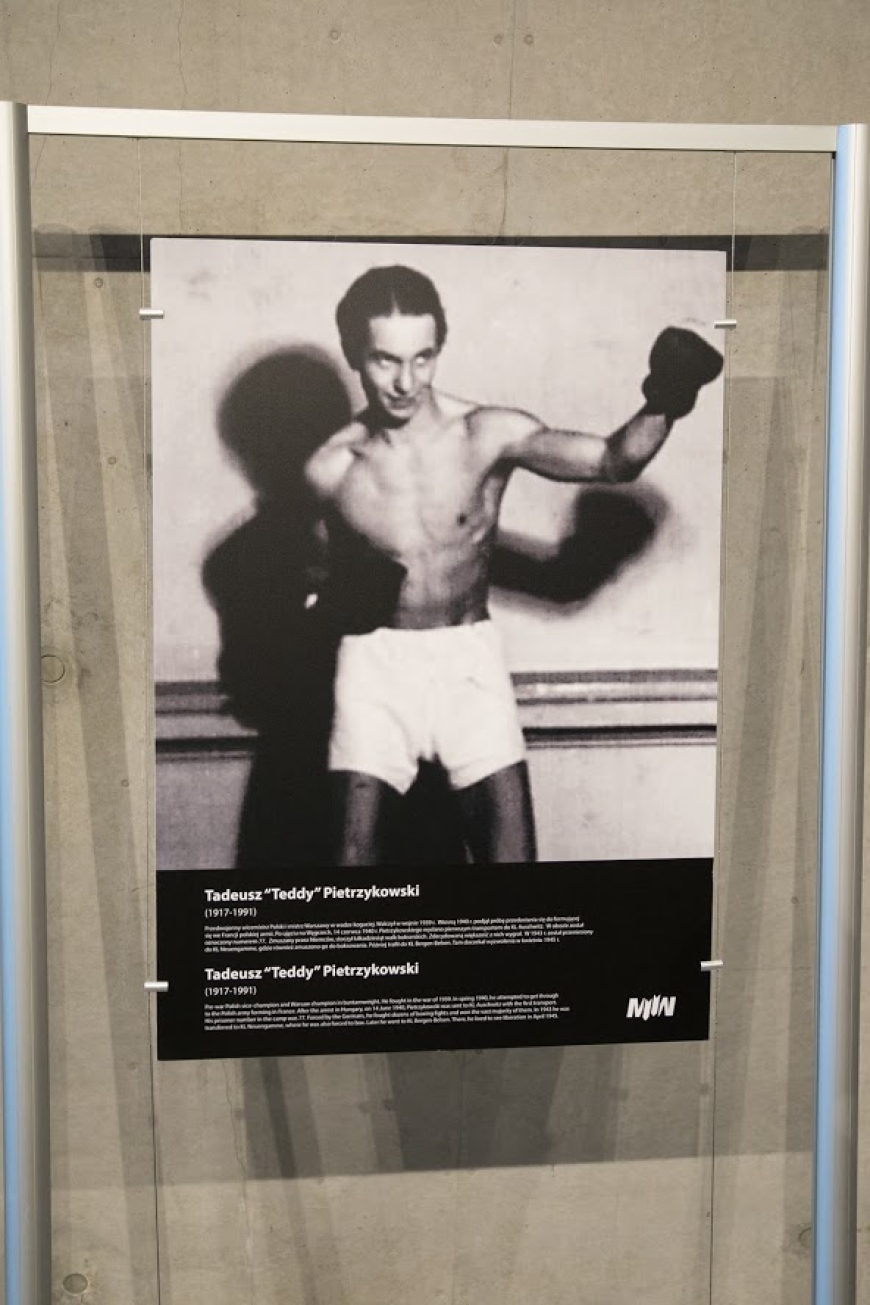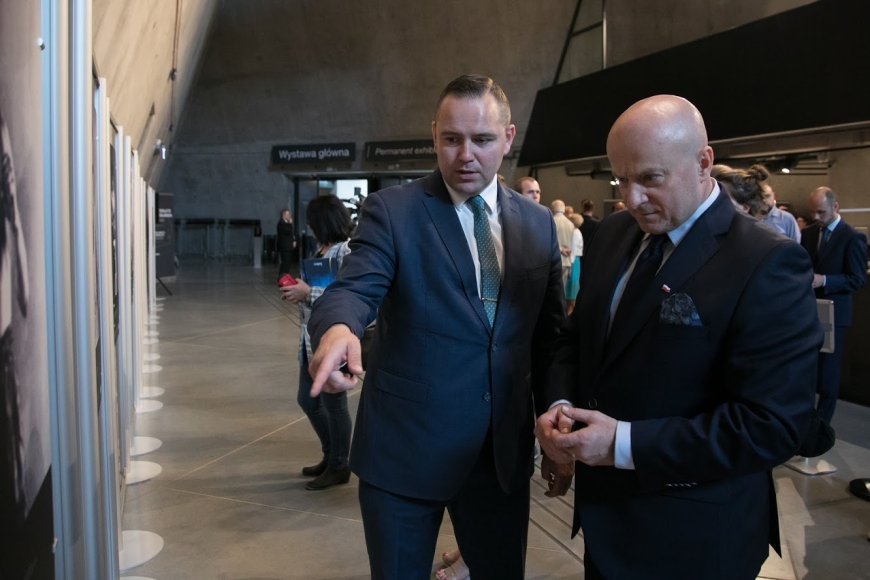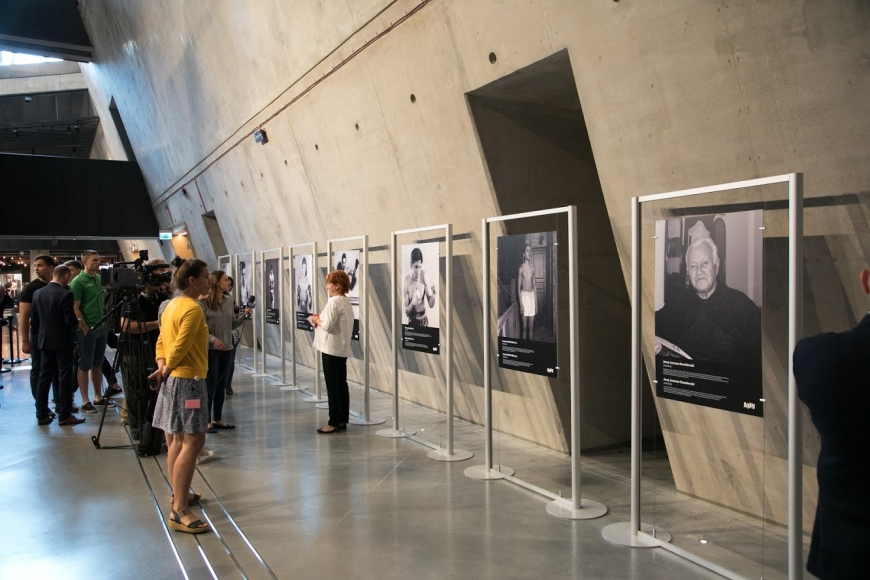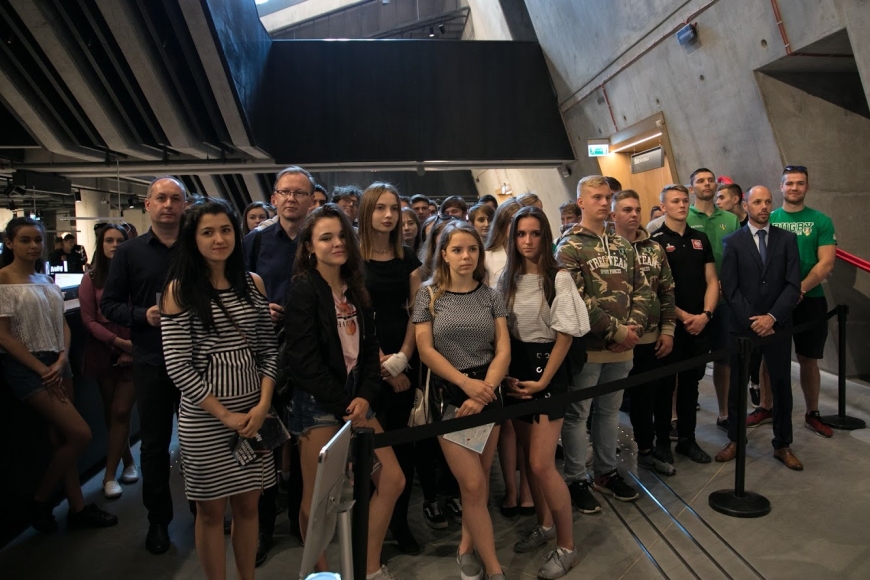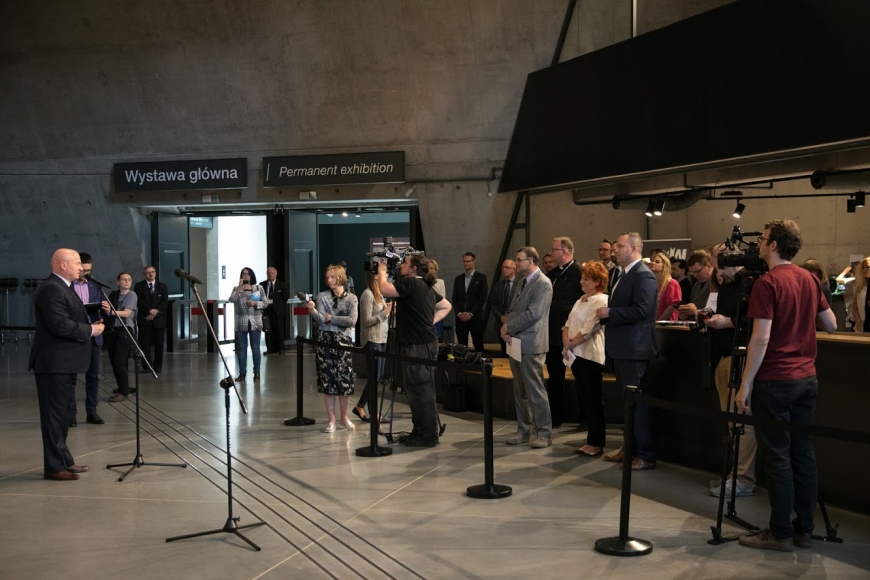Official opening of the temporary exhibition "Boxers in the hell of the camps"
25th of May there was a ceremonial opening of the temporary exhibition entitled "Boxers in the hell of the camps." The exhibition commemorates the fate of the boxers who were forced by the Germans to fight in concentration camps, often giving their lives for a proverbial slice of bread.
On behalf of the Director of the Museum of the Second World War in Gdańsk, Dr. Karol Nawrocki, the guests were welcomed by Mateusz Błażewicz, the exhibition's curator. The opening ceremony was attended by the Secretary of State in the Ministry of Sport and Tourism Jarosław Stawiarski, members of the Council of the Museum of the Second World War in Gdańsk, Deputy Director of the Board of the Treasury Administration in Gdańsk Rafał Szramka, representatives of Ring3city Boxing Club, and Eleonora Szafran, daughter of Tadeusz Pietrzykowski.
- Boxing, this noble sport discipline of ancient origin, codified and developed in Great Britain at the turn of the seventeenth and eighteenth centuries, an Olympic discipline, is not meant to be an amusement for degenerates. If there had been no outbreak of World War II, as a result of an agreement between two equally terrifying totalitarianisms, Soviet communism and German Nazism, our heroes whom you see here - among them Tadeusz "Teddy" Pietrzykowski, Antoni "Kajtek" Czortek or Johann "Rukeli" Trollmann - would probably have won medals at the Olympic Games, European championships and world championships. However, this did not happen and they had to fight for more than Olympic medals, they had to fight for their lives, for the lives of their colleagues, of their friends, for the preservation of their honour - said Dr. Karol Nawrocki, the Director of the Museum of the Second World War in Gdańsk.
In his speech, Dr. Karol Nawrocki referred to the first camp fight of a Pole with a German kapo, in which Tadeusz "Teddy" Pietrzykowski, at the time weighing about 40 kilos in the fight against a kapo, at the time weighing 70 kilos - won and for his victory received a loaf of bread. This loaf helped to keep him and his colleagues alive, because where good is born, there is also born human solidarity – emphasized Dr. Karol Nawrocki, Director of the Museum of the Second World War in Gdańsk.
- The camp boxers performed another role in the concentration camp. They were a transfusion of faith, a transfusion of hope that Poland had not yet perished, and a Polish boxer beating a kapo, who had just murdered and persecuted his colleagues, gave hope that it was possible to escape from the concentration camp - emphasized the Director of the Museum of the Second World War in Gdańsk, Dr. Karol Nawrocki.
The Secretary of State in the Ministry of Sport and Tourism Jarosław Stawiarski, present at the opening of the exhibition, said in his speech that the exhibition presented is a great idea on how to commemorate the history of Poland, by organizing events related to sport.
- Thank you for this initiative. As the Ministry of Sport, we can only thank you, because it is important to speak and remind people about such important things from the history of Poland. National identity is created by history, and sport is also part of our social life - said Jarosław Stawiarski, Secretary of State in the Ministry of Sport and Tourism.
Prof. Tadeusz Wolsza emphasized the importance of Polish athletes during World War II who commemorated themselves in the history of Poland. He approximated the data on the involvement of Polish athletes in the fight after the German and Soviet invasion of Poland.
- During the Second World War, 65 Polish Olympians lost their lives, including one woman. As the researchers established, 19 died as a result of hostilities, 5 in the Warsaw Uprising, 1 murdered in a prisoner-of-war camp, 12 died in Soviet gulags, 5 in concentration camps, 3 in ghettos, 3 in prisons and 6 in executions. Janusz Kusociński was one of those executed. In the case of 6 people, the place and circumstances of their death remain unknown. It was established that 124 athletes, including the medallists of world and European championships and participants of the Olympics, died in the Warsaw Uprising - said prof. Tadeusz Wolsza. We have beautiful cards in the history of Polish sport, not only cards marked with participation in the Olympic Games and world championships, but a beautiful service in the Home Army, Polish Armed Forces in the West, or glorious successes in the battle of Tobruk, or in breaking the German defence under Monte Cassino. It is an undeniable contribution of Polish athletes to our national history.
The opening of the exhibition was honoured with the presence of Eleonora Szafran, daughter of Tadeusz Pietrzykowski, a boxer with the pseudonym "Teddy".
- My father's dream was that his life and his fights would be presented to a wider audience. After all these years, after the end of the war, he really wanted to release his memoirs, although he never managed to do so. However, I am standing in front of you now and I hope that a book will soon come to your hands. After finding my father's diary, I wrote his memoirs. I can only be proud of such a father, and when I look at his photos in this beautiful Museum, I have tears in my eyes. Thank you very much. My father's last fight in 1938 took place in Gdańsk and today in Gdańsk I stand before you and I am very touched. History is coming full circle and maybe it is here in Gdańsk where the continuation will be initiated - said Eleonora Szafran, daughter of Tadeusz Pietrzykowski, who added that a film about her father is being made, which will be made available to a wider audience in 2020.
The presented exhibition is the first point of the program associated with the event organized by the Museum commemorating Tadeusz Pietrzykowski, a boxer with the pseudonym "Teddy". However, it should be remembered that Tadeusz Pietrzykowski was not the only boxer who participated in the camp fights. The presented exhibition is an excellent opportunity to explore the topic of boxers in concentration camps
About the exhibition:
Prisoners from areas of occupied Europe were forced to take part in boxing matches organized by the Germans in concentration camps. The SS men turned a sporting competition into a fight for life and death. The Nazis made bets among themselves who would win, drank alcohol, smoke cigars, treating the murderous fight as fun. Meanwhile, for the exhausted with arduous work, starved prisoners, the fights constituted an additional enormous effort. However, they were also a chance to obtain food. At the order of the Germans, the fights took place without any rules. Often competitors with various weights and heights were matched up. There were also frequent fights between scrawny prisoners and well-fed kapos or even SS men. For many prisoners, these fights ended in death, for others they were a chance to survive.
Tadeusz "Teddy" Pietrzykowski (1917-1991), Antoni "Kajtek" Czortek (1915-2004), Victor "Young" Perez (1911-1945), Lorenzo Vitrià Barrera (1908-1941) are just some of the boxers whose silhouettes were presented at the exhibition "Boxers in the hell of the camps" presented to all visitors presented at the -3 level in the Museum of the Second World War in Gdańsk. Admission to the exhibition is free.






